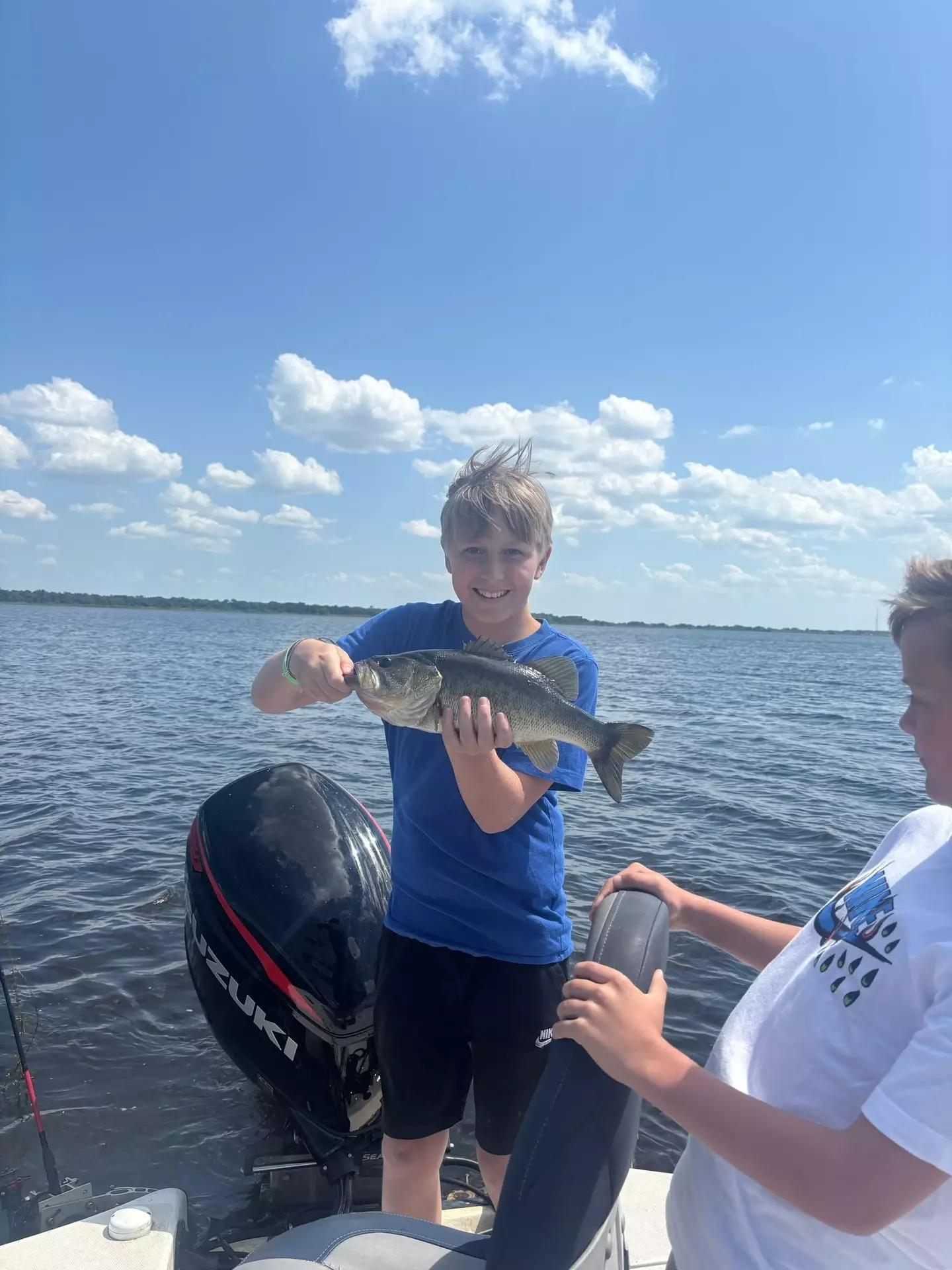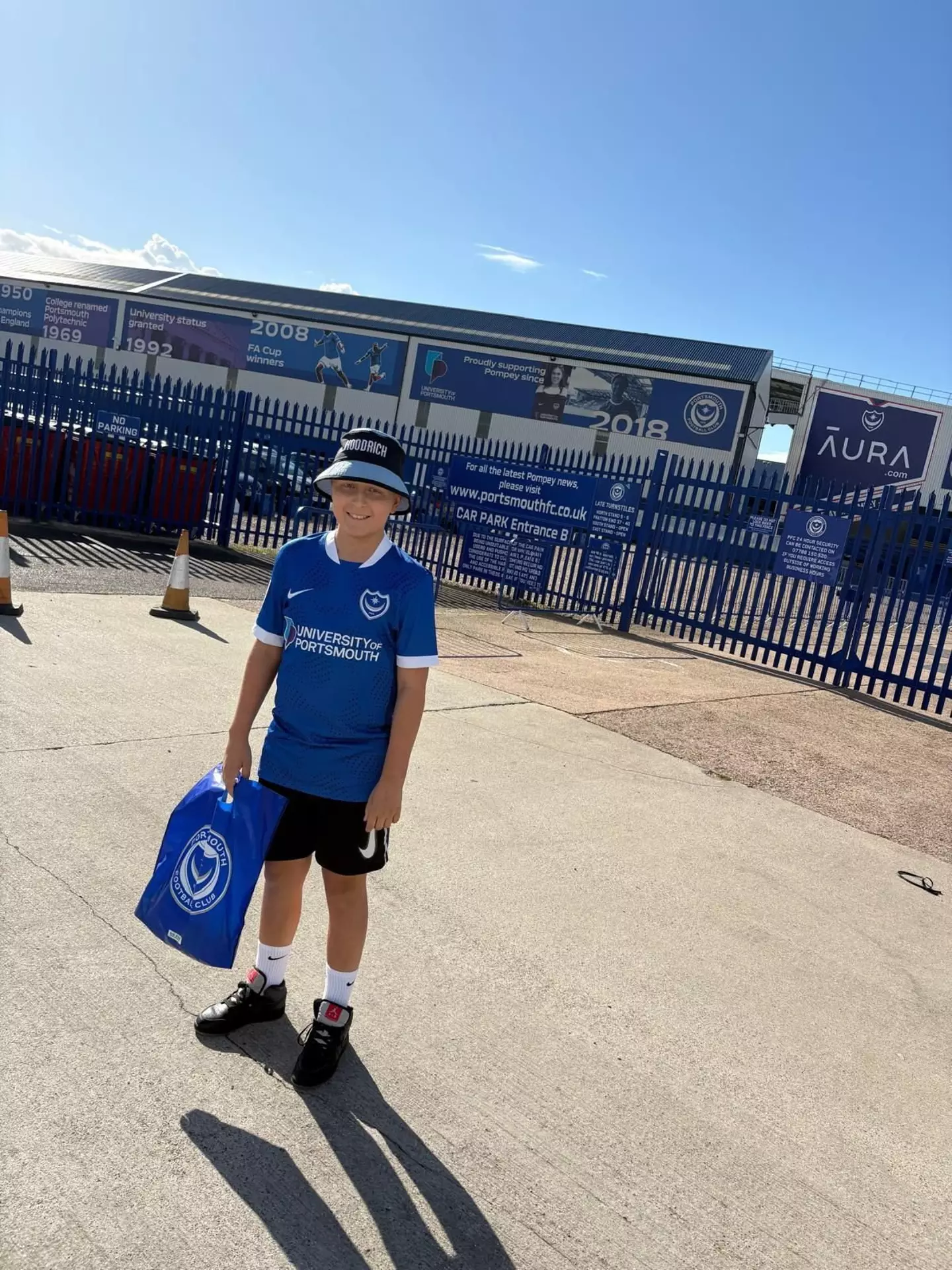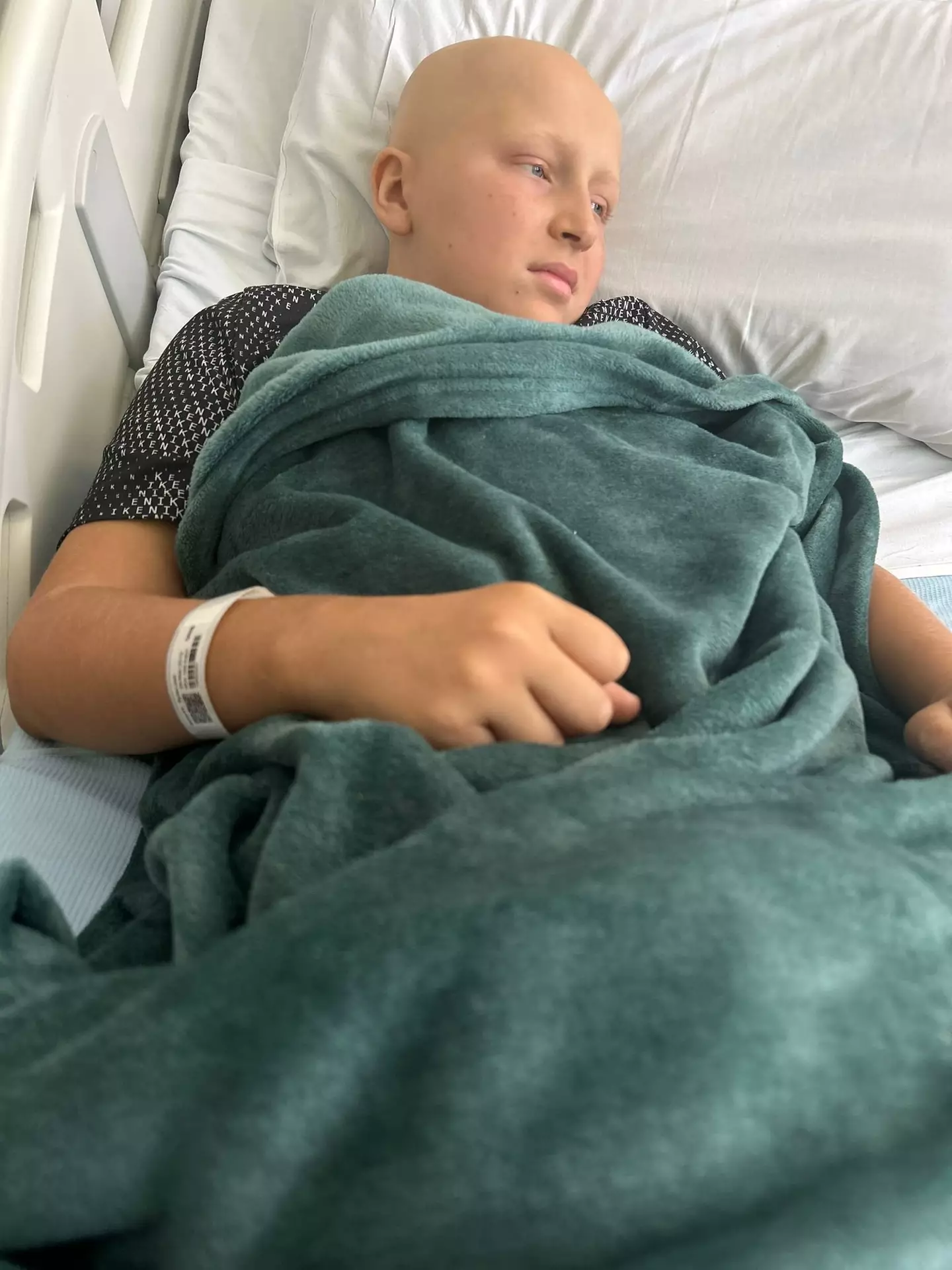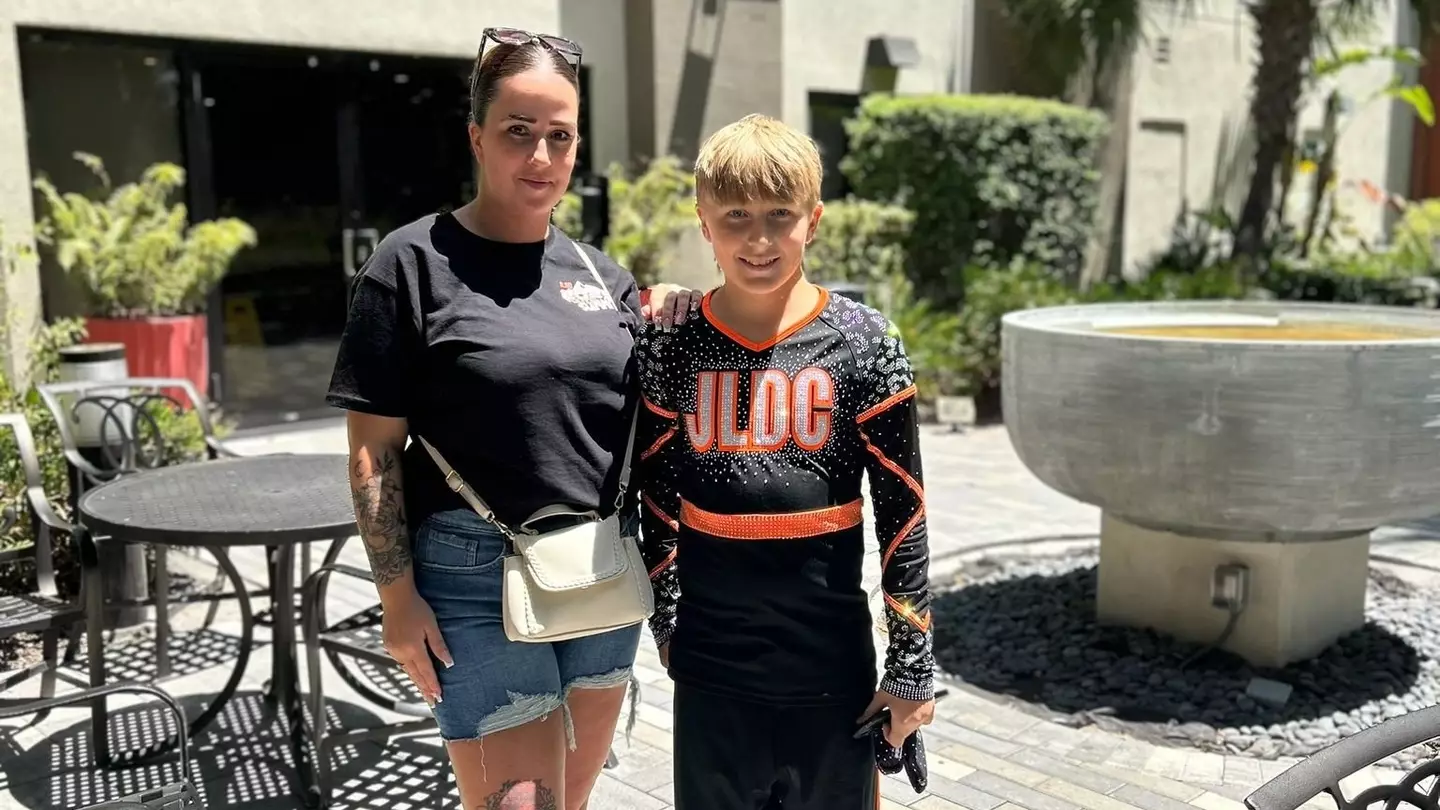A mother has shared the initial signs her son experienced after doctors incorrectly diagnosed him with tonsillitis, confessing she ‘knew’ something more serious was at play.
Thirteen-year-old Tyler Scott received a diagnosis of Hodgkin Lymphoma, a rare blood cancer, earlier this year.
Living in Hampshire, UK, Tyler had been dealing with symptoms that medical professionals thought were due to tonsillitis. However, his mother Charley was convinced there was a deeper issue.
“The doctors initially thought it was tonsil-related, but my mum’s instinct just knew there was more to it,” she explained.
“His blood results were erratic. They were showing that he was anaemic, and there were no definitive answers (as to what it was).
“They [the doctors] said at the time that he didn’t have leukaemia or blood cancer.”

Charley first identified unusual lumps on Tyler’s neck as a concerning symptom.
She approached doctors in February when these lumps became more pronounced and Tyler began to feel fatigued.
Though initially dismissed as tonsillitis, by July, Tyler was diagnosed with stage four cancer, prompting the start of his treatment.
Tyler now faces cancerous growths in multiple areas including his face, nose, throat, collar bone, armpit, spleen, left shoulder blade, and various organ entry points, with one located near his heart.

“I believed it was Lymphoma, but I was very shocked when they told me it was stage four. How was it not picked up on?” Charley expressed.
This summer, Tyler embarked on chemotherapy, having completed six sessions so far. His treatment also included eight blood transfusions, and he awaits the start of three rounds of radiotherapy.
“Mentally, it’s really hard because you’re watching your 13-year-old lifeless,” Charley said.
“If he’s not in hospital for treatment he’s in because he’s catching every bug.
“It’s turned our world upside down. We just don’t know what’s going to happen. We’re staring into the unknown.
“So many things he used to love doing, he now can’t do. He was competing as a world cheerleading champion and now he can’t do it.
“He also used to love fishing and we can’t go anymore because of the bacteria.
“He has to be wrapped in cotton wool when he was quite an adventurous boy.”

Tyler is the oldest sibling among four children, including his 10-year-old brother Kenny and his sisters Nyla, eight, and Aaloiah, six.
The family is also confronting financial challenges as Charley has taken unpaid compassionate leave; additionally, frequent hospital visits have brought about extra expenses.
Nevertheless, there are encouraging signs of Tyler’s positive response to chemotherapy.
“Tyler has remained the most positive little boy I’ve ever met. He’s so resilient and so strong,” Charley said.
Despite this progress, Charley remains concerned about the future and the continued effectiveness of the treatment.
“Even though they say he’s curable, there are so many risks involved. He could get cancer elsewhere or it could come back or he could have a turn with the chemo,” she added.
“Of the six rounds he’s had, only two of them went well, so every round is different and you never know what’s next.
“Your body’s so exhausted, but you can’t shut down because you have to go so many places and do so many things.
“I feel like I’m just constantly on the go. You’re trying to keep positive but you know anything could happen.”
If you’ve been affected by any of these issues and want to speak to someone in confidence, contact the American Cancer Society at 1-800-227-2345 or via their live chat feature, available 24/7 every day of the year.

